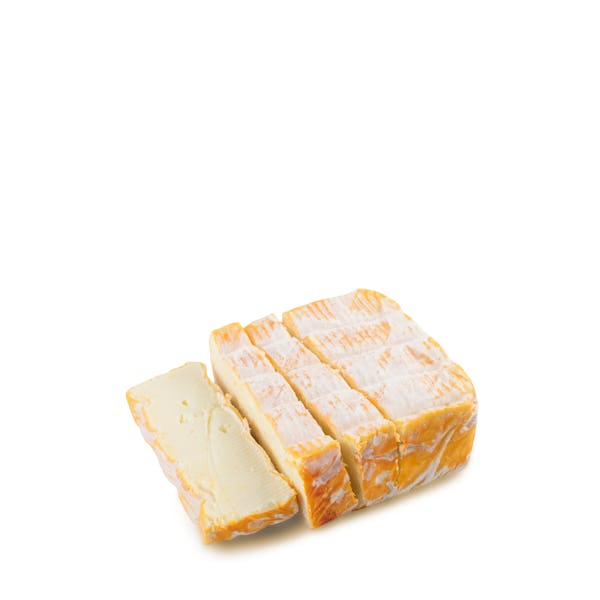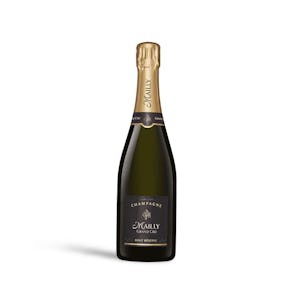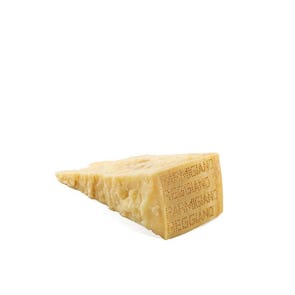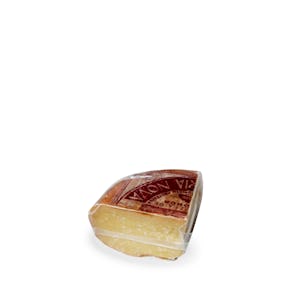
TASTING NOTES FROM THE CURATOR
This rather stinky brick (“vieux pant” or old stinker to the locals) is the best-known washed-rind cheese in France. It has a soft, creamy, pale yellow pâté, lightly sweet and with a flavor that lingers. You’ll find it has a few holes and a faintly chalky center. While it is best in late spring and summer, it can be found and enjoyed year-round.
The production process for Maroilles is an interesting one. The cheese curds are shaped into rectangles and salted before they are removed from their hoops. They are then rested in a ventilated area for a little over a week to develop a light blue fuzz. Once this happens, they are brought to a cave cellar to be washed and brushed repeatedly with a particular bacteria for five weeks to develop their signature red-orange rind.
PREPARATION OR PAIRINGS
Maroilles makes for a brilliant dessert cheese all by itself, but it also makes a powerful starter. Pair it with smoked salmon—we love it with our Kaviari Salmon Collection—a bit of fresh parsley, and some wheat crackers for a simple but beautiful beginning to dinner.
It is a beer-drinker’s choice, in truth, great with strong brown ales, French ciders, and sour beers. It also pairs well with eau-de-vie (clear brandy). It does better with white wines than reds, such as a late-harvest Gewürztraminer or a Sauvignon Blanc. Of course, a Cava or Prosecco will not steer you wrong, either!
FROM MONKS TO KINGS
It’s said this cheese was created by the monks at the Abbey of Maroilles in the year 962 AD. It became a tradition of the region for farmers to make small squares of young Maroilles cheese from the milk of their cows every June 24, to celebrate the feast day of Saint Jean Baptiste. On October 1, the feast day of Saint Remi that is also known in the area as Maroilles Day, the villagers would donate their cheese blocks to the Abbey, to be distributed by the monks to the Champagne grape harvesters. The cheese quickly became famous, so famous in fact that it became known as the favorite cheese of several French monarchs: Philip II, Louis IX, Charles VI, and Francis I.
Storage Instructions
Cheeses (except brined ones in jars) should be stored in the crisper or the butter drawer of a refrigerator, not on the shelves themselves. This is to help regulate their temperature and humidity levels—and prevents the formation of mold. Once opened, they should not be kept in their original packaging. Soft cheeses with delicate rinds need to breathe, so they are best placed in glass containers lined with paper towels to absorb extra moisture. Leave the lid open a tiny bit for air to circulate. Cheeses are air-flown from France on demand. They are meant to be consumed within 1 to 2 weeks of their arrival at your residence.











